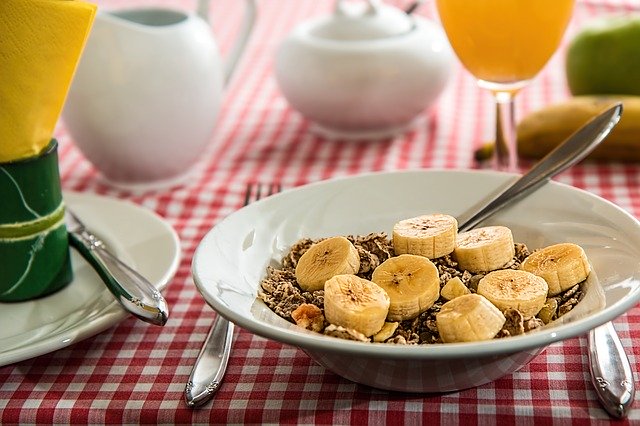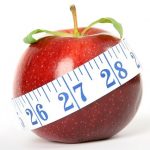Anyone who has been on a healthy diet for more than a couple of hours knows the basic rules: no junk food and no sweets. Seems pretty straight-forward. But is it? Ok, so most anything is healthier than French fries, that much we know, but not all healthy foods are good for you when you’re trying to lose weight. Read below to find out which are the top 5 foods that make you fat!
The line between healthy food and diet-friendly food may be a fine and fickle one, but it’s there, and if you’re really looking to shake off those extra pounds, you have to start paying attention to details. We have put together a list of 5 foods that make you fat, i.e. healthy foods that could really sabotage your diet in the long run. But don’t panic, we also offered suggestions on how to adjust your diet so that you can enjoy all your favorite foods, without having to make drastic cuts.
Salads
Now, I know what you’re thinking – this is ridiculous, all the skinny girls in the movies order salads when they eat out, how can they not be good for weight loss? Well, it’s not that simple. Sure, salads are a healthy choice, especially if they contain lots of leafy greens, such as spinach, or arugula, which are packed with vitamins and minerals. Broccoli and tomatoes are great, too, they’re excellent vitamin C and A sources. So far, so good. But what’s a salad without a little grated cheese and a tasty dressing?
Herein lies the problem. Because it’s a “salad” and therefore healthy and light, we tend to overdo it with the extra toppings and portion sizes. Also, the dressing can double the number of calories in your salad – after all, a mere tablespoon of olive oil, as good for you as it is, carries over 100 calories.
What you can do: Keep your salads simple. Don’t overload them with ingredients, because the calories will add up and it will be hard to control your portions. Also, steer clear of packaged dressings, especially mayonnaise-based ones (yes, we know they’re delicious!) and be careful at how much oil you add to your vinaigrettes. Try using low-fat yogurt as a base to which you can add herbs, spices and lemon juice – that way your salad won’t be dry, but the calorie toll will still remain low.
Nuts
Almonds, cashews, walnuts, and a wide variety of seeds, such as pumpkin or sunflower, are indeed very good for you. They contain so-called “good fats”, aka essential fatty acids, like omega-3 and 9, calcium, iron, vitamins from the B spectrum, and the list goes on. But believe it or not, they are actually caloric bombs in disguise!
The problem with nuts and seeds is that they’re tiny and delicious, and they usually go in a bowl on your desk which you snack on mindlessly and endlessly, because, yes, they can be quite addictive. Almonds, for instance, pack a whopping 576 calories per 100 grams, which definitely qualifies them as one of the 5 foods that make you fat.
What you can do: Always weigh your nuts and seeds, don’t just fill up the bowl and comfort yourself at the thought that they’re healthy, so you can eat as many as you want. Instead of snacking on them and possibly overdoing it, sprinkle a few on our morning oatmeal or on your salad.
Bananas
Bananas are fruits, and you should eat as many fruits as possible, right? Well, sort of. You should eat fruits and vegetables every day, because they’re loaded with vitamins, antioxidants, and natural fiber, and they get digested slowly, so they keep you full longer. But some fruits, such as bananas, also contain a lot of sugars, in the form of fructose, which can add up to a lot of extra calories. One banana has a little over 100 calories, so be mindful of your portions.
What you can do: Eat small portions of fruit throughout the day, as a healthy snack.
Fruit juice
Fresh juice is practically a glass-load of vitamins and it can be a more convenient way to get your daily fruit-dose, especially if you’re not particularly inclined to actually eat them, or if you’re not a fan of the sourness of certain fruits, like kiwi, lemons or oranges. Eating an apple is no big deal, but what about 4? What about 4 or 5 oranges? The calories add up even in juice form, no matter how healthy the ingredients. For instance, a 200 ml glass of apple juice comes pretty close to 100 calories, and if you usually don’t stick to one glass, you might have to reconsider your portions on this one, too.
Also, this applies to homemade, freshly squeezed juice. Supermarket juices often have lower fruit content, and often involve lots of added sugar, which obviously packs even more calories.
What you can do: Reduce your fruit juice intake to 1-2 glasses a day, and make sure you balance your meals accordingly.
Breakfast cereal
Milk and cereal breakfast is an all-time classic, and it’s a healthy and balanced way to start your day. But not all breakfast cereal are the same. The tastiest ones are usually the culprits, because they contain lots of added sugar, fruits, nuts and chocolate-covered goodness. Even oatmeal, which is our go-to diet breakfast, can add up to nearly 400 calories per 100 grams.
What you can do: Like with most things, moderation is key. Cereal, be them wholegrain or otherwise, are basically pure carbs, so you need to control your portions carefully. Pick a smaller bowl and don’t overflow it – it adds up. Also, use skimmed milk or low-fat yoghurt if you want to cut back on calories.
Remember to keep your diet balanced and give your body all the protein, carbs and healthy fats it needs, because that’s the sure-fire way to looking and feeling healthy.



